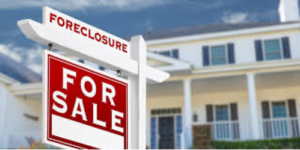Are owners failing to comply with condominium bylaws? Let us help enforce your community association’s bylaws.
Illinois Condo Law Practice Areas
Illinois Attorneys
Areas We Serve
 Illinois Condo Lawyers
Illinois Condo Lawyers
Illinois Condominium Lawyers For Condo Collections
An Illinois condominium owners association must collect condo dues from residents to provide essential services and fund the operations of the condominium association. The governing documents of a condominium association typically require all unit owners to pay condo dues. Whenever a unit owner fails to pay their condo dues, the other unit owners are unfairly forced to shoulder the burden of the condo association’s operating costs. Keeping up on condo association collections is essential for a well-run condo association. At Hirzel Law, our Illinois Condo Lawyers can help collect delinquent condo dues.
Illinois condo associations must be diligent in pursuing delinquent condo dues. An essential part of condo association collections is having a collection policy. As recommended by the Community Associations Institute, having a condo collection policy in place ensures that all unit owners of the condominium that become delinquent are treated fairly and that the condo collections process is efficient.
Similarly, enforcing condo collection policies ensures that condo delinquencies do not continue to grow indefinitely. A high condo delinquency rate may impact the ability of the condo association to provide essential services. Similarly, a high condo delinquency rate may negatively impact property values as banks may not offer loans to potential purchasers if the condo’s delinquency rate is too high.
In Illinois, a condo association is given an additional method for collecting unpaid dues that is not present in most states. As outlined in “A Guide to Collecting Delinquent Illinois Condo and HOA Assessments”, Section 9.2 of the Illinois Condominium Property Act provides that a condo association may file an eviction action in the case of a delinquency. More specifically, that section provides the condo association can evict a unit owner, or any tenant of the unit owner, if there is a default in the performance of obligations set forth in the declaration, bylaws, or the rules and regulations. The process must be done with the assistance of an attorney as Illinois law does not allow corporations (such as condo associations) to participate in litigation without an attorney.
Although Illinois condo associations have the power to evict a unit owner or tenant, it can still be difficult for condo associations to collect delinquent condo dues effectively and within a timely manner without professional help. Therefore, if the initial payment reminders do not result in payment, a condo association should involve an experienced condo lawyer to assist in collecting delinquent condo dues.
How to Collect Delinquent Condo Association Assessments
While the process for collecting delinquent condo assessments is ultimately governed by declaration, bylaws and the condo’s collection policy, the typical process for condo collections is as follows.
- The condo unit owner becomes delinquent by failing to pay their condo assessments in a timely manner.
- The condo association sends a reminder letter advising the unit owner that the payment is delinquent. Then, it will be turned over to the condo lawyer for further action if the unit owner fails to pay their outstanding condo assessments.
- If the unit owner still fails to pay their delinquent condo assessments, the condo association provides a ledger to the condo attorney that identifies the delinquent condo dues, going back to a zero balance along with interest and late fees.
- The condo attorney sends an initial demand letter to the unit owner requesting payment of the delinquent condo assessments. In many cases, the unit owner will enter into a payment plan with the condo association to pay the delinquent condo assessments or will immediately pay the arrearage.
- Although not a required step in Illinois, the condo attorney may suggest the recording of a condo lien for delinquent condo assessments until the delinquent condo assessments are paid in full.
- The condo attorney performs research as to whether the condo lien will prioritize other prior recorded interests against the property and provides a recommendation to the condo association as to the available options to collect the delinquent condo assessments, including possible foreclosure or an eviction action.
- The condo association proceeds by filing a lawsuit seeking possession of the unit, or as a last resort, a judicial foreclosure.
As outlined in “A Guide to Collecting Delinquent Illinois Condo and HOA Assessments”, if a judicial foreclosure is the chosen remedy, “After the lawsuit is filed and service of process is completed, one of two things will typically happen. If the unit owner does not file an appearance and an answer, the community association can move for a default judgment after a statutory waiting period. If the unit owner does file an appearance and an answer, the case will proceed towards summary judgment. Unlike other civil actions, in most foreclosure actions, there is usually little to no discovery and cases proceed to summary judgment relatively quickly.”
While the above process for condo association collections is common, keep in mind that every condo collection case is different, and Hirzel Law creates a plan for each matter based on the facts and circumstances of that case.
Who Is Liable For Delinquent Condo Association Assessments After Foreclosure?
 When an Illinois condo is foreclosed on as a result of delinquent condo association assessments, the mortgagee becomes liable for assessments (even before taking title) after the judicial sale. If a third-party outbids the mortgagee at a judicial sale, it is liable for up to 6 months of assessments.
When an Illinois condo is foreclosed on as a result of delinquent condo association assessments, the mortgagee becomes liable for assessments (even before taking title) after the judicial sale. If a third-party outbids the mortgagee at a judicial sale, it is liable for up to 6 months of assessments.
Can Illinois Condo Associations Recover Attorney’s Fees for Collecting Delinquent Condo Assessments?
The answer is generally yes. Section 9.1 of the Illinois Condominium Property Act states “If any unit owner shall fail or refuse to make any payment of the common expenses or the amount of any unpaid fine when due, the amount thereof together with any interest, late charges, reasonable attorney fees incurred enforcing the covenants of the condominium instruments, rules and regulations of the board of managers, or any applicable statute or ordinance, and costs of collections shall constitute a lien on the interest of the unit owner in the property prior to all other liens and encumbrances, recorded or unrecorded, except only (a) taxes, special assessments and special taxes theretofore or thereafter levied by any political subdivision or municipal corporation of this State and other State or federal taxes which by law are a lien on the interest of the unit owner prior to preexisting recorded encumbrances thereon and (b) encumbrances on the interest of the unit owner recorded prior to the date of such failure or refusal which by law would be a lien thereon prior to subsequently recorded encumbrances. Any action brought to extinguish the lien of the association shall include the association as a party.”
Condo Lawyer or Condo Association Collection Agency: What to Look for in Deciding How to Pursue Condo Association Collections
- Fees. The Condo Lawyers at Hirzel Law charge flat fees for many of its condo association collections services. As indicated above, in many cases, reasonable flat fees, hourly attorney’s fees and costs may be charged back to the delinquent owner if permitted by the condo association’s declaration and bylaws. The attorney’s fees and costs are charged on a monthly basis. Client satisfaction is paramount at Hirzel Law. In the unlikely event that a condo association is dissatisfied with the progress of its condo associations collections, the condo association can leave at any time without having to pay additional charges. In contrast, we have reviewed some Condo Association Collection Agency contracts that require a condo association to pay additional fees if they terminate their relationship with the Condo Association Collection Agency. While some Condo Association Collection Agencies advertise that they do no charge fees unless they collect, this is not always the case. Accordingly, it important to carefully review a Condo Association Collection Agency contract to understand how often the condo association will be updated on the fees incurred and if there are additional fees that will be owed if the condo association becomes dissatisfied and terminates the Condo Association Collection Agency because condo association collections are not progressing.
- Licensing Requirements. In Illinois, a lawyer is required to obtain a law degree, which typically requires at least three (3) years of training in law school, after completing college, in addition to passing the bar exam and a separate ethics exam. In contrast, a person may obtain a license to operate a Condo Association Collection Agency if they are 18 years old, have a high school diploma or the equivalent of a high school education, they have 6 months of experience in collection accounts and they have passed the state licensing exam.
- Risk. When deciding whether to use a Condo Lawyer or a Condo Association collection agency, a condo association should do research to determine how often the Condo Lawyer or condo association collection agency has been sued and how often their condo association clients have been sued as a result of the collection methods employed. This is something that can typically be determined through a google search, but a condo association should always ask the Condo Lawyer or condo association collection agency about how many times they have been sued and how often their clients are sued for collection related issues. If a condo association is forced to defend claims related to debt collection practices, it may greatly increase the overall legal expenditures of the condo association.
- Scope of Services. Condo lawyers are permitted to practice law and can perform a wide range of collection methods, such as sending a demand letter, recording a condo association lien, providing legal advice on the different options to collect delinquent condo association assessments, filing an eviction lawsuit, foreclosing on a condo association lien, obtaining a money judgment, or collecting a money judgment. Also, it is not uncommon for a delinquent unit owner to also be in violation of other restrictive covenants, such as architectural rules, and a condo lawyer is well suited to handle these types of “mixed issues” and can provide one stop shopping for all of the condo association’s legal needs. In contrast, a condo association collection agency is not permitted to practice law and is precluded from taking certain collection actions.
The Right Illinois Condo Lawyers for Your Condo Association Collection Needs
Hirzel Law represents condo associations in condo association collections throughout the State of Illinois. At Hirzel Law, our condo lawyers are here to get results and relieve your condo association of the debt collection burden. Our cutting-edge thinking keeps us on top of the latest trends in condominium law. As a result of our exceptional legal skills, the attorneys at Hirzel Law have garnered numerous awards from Best Lawyers, the Community Association Institute’s College of Community Association Lawyers, Leading Lawyers, and Super Lawyers. Our Illinois Condo lawyers are known for client education and highly responsive customer service.
Contact Our Condo Lawyers for Help with Condo Association Collections
 Collecting deliquent condo association dues is not fun for condo associations, but it is necessary for a happy and successful community. At Hirzel Law, PLC, our Illinois condo lawyers can help your condo association resolve its condo association delinquency issues. We stand by our clients, offering the highest quality legal representation and promptly responding to our clients’ needs.
Collecting deliquent condo association dues is not fun for condo associations, but it is necessary for a happy and successful community. At Hirzel Law, PLC, our Illinois condo lawyers can help your condo association resolve its condo association delinquency issues. We stand by our clients, offering the highest quality legal representation and promptly responding to our clients’ needs.
Contact Hirzel Law online or call 312-552-7669 (Chicago) to see how our Illinois condo lawyers can collect delinquent assessments on your Illinois condo association’s behalf.
